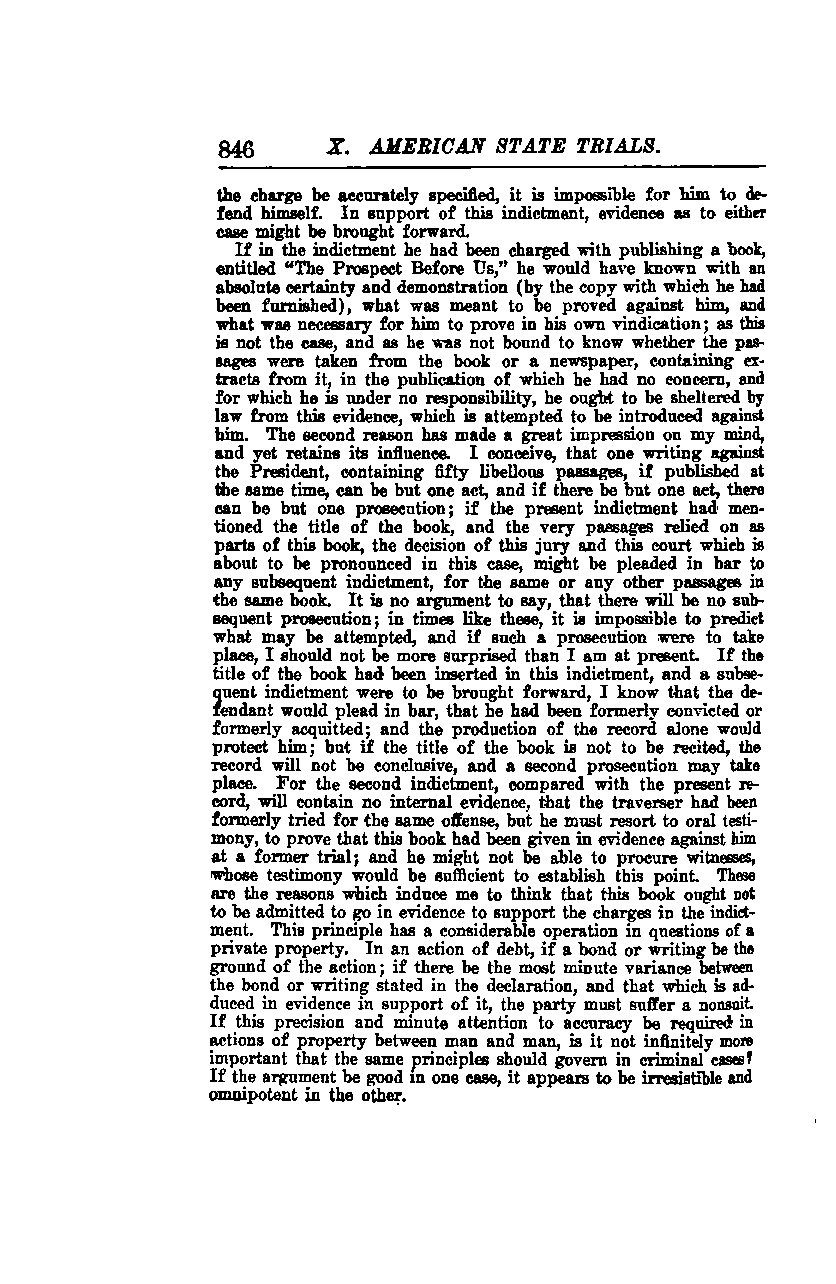
Here is the translated text as follows:
In the case of American State Trials, if the charge is not accurately specified, it becomes impossible for the defendant to properly defend themselves. Evidence pertaining to either case might be presented in support of this indictment.
Had the indictment charged him with publishing a book entitled "The Prospect Before Us," he would have known with absolute certainty and clarity (by the copy provided to him) what was meant to be proved against him and what was necessary for him to prove in his own defense. As this is not the case, and since he was not obligated to know whether the passages were taken from the book or a newspaper containing extracts from it—of which he had no involvement and for which he bears no responsibility—he should be protected by law from this evidence being introduced against him.
The second reason has made a significant impression on my mind and continues to influence me. I believe that a single writing against the President, containing fifty libelous passages, if published simultaneously, constitutes only one act. If there is only one act, there can be only one prosecution. If the present indictment had mentioned the title of the book and the specific passages relied upon as parts of this book, the decision of this jury and this court, which is about to be pronounced in this case, might be used as a defense against any subsequent indictment for the same or any other passages in the same book. It is not a valid argument to say that there will be no subsequent prosecution; in times like these, it is impossible to predict what may be attempted. If such a prosecution were to occur, I would not be more surprised than I am at present.
If the title of the book had been included in this indictment, and a subsequent indictment were to be brought forward, I know that the defendant would plead in defense that he had been previously convicted or acquitted. The production of the record alone would protect him. However, if the title of the book is not recited, the record will not be conclusive, and a second prosecution may occur. The second indictment, when compared with the present record, will contain no internal evidence that the defendant had been previously tried for the same offense. He would have to rely on oral testimony to prove that this book had been presented as evidence against him at a former trial, and he might not be able to procure witnesses whose testimony would be sufficient to establish this point.
These are the reasons that lead me to believe that this book should not be admitted as evidence to support the charges in the indictment. This principle has significant implications in questions of private property. In an action of debt, if a bond or writing is the basis of the action, any minute variance between the bond or writing stated in the declaration and that which is presented in evidence in support of it will result in the party suffering a nonsuit. If such precision and attention to accuracy are required in actions of property between individuals, is it not infinitely more important that the same principles govern in criminal cases? If the argument holds in one case, it appears to be irresistible and omnipotent in the other.